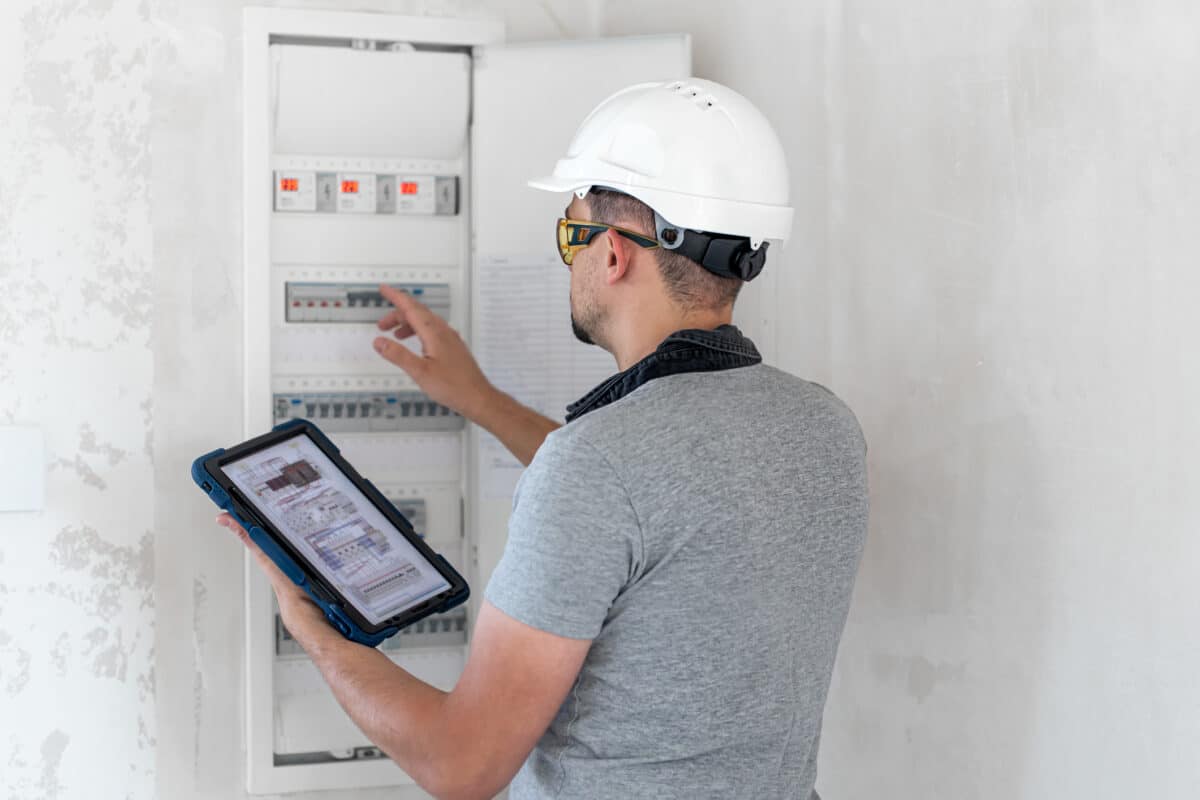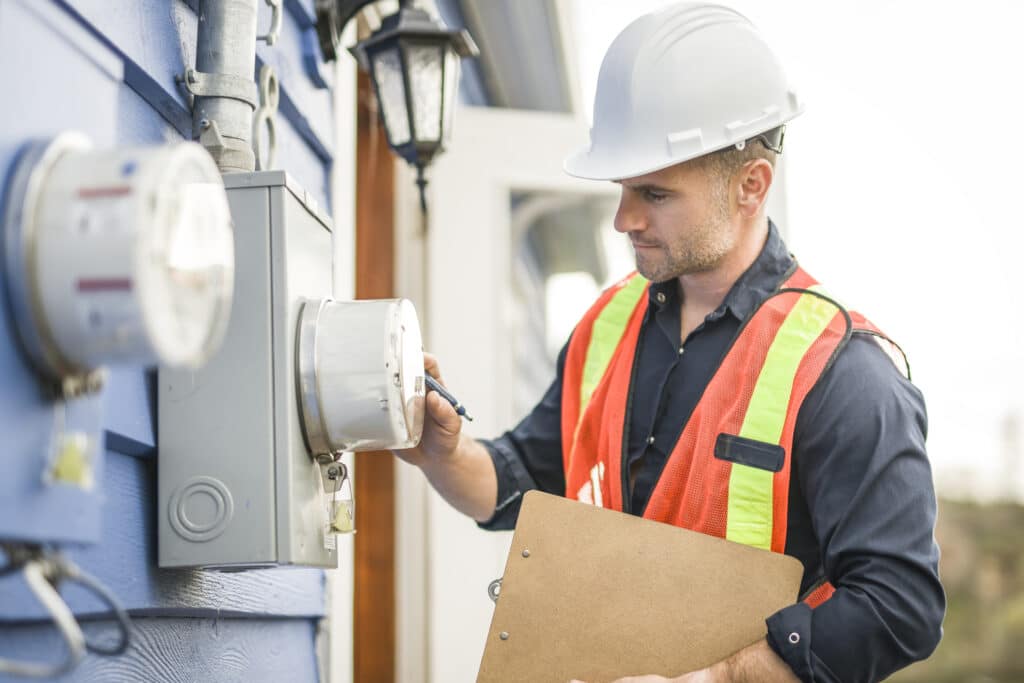Essential Guide to Residential Electrical Inspections

Understanding the importance of regular residential electrical inspections is crucial for homeowners aiming to ensure the safety and efficiency of their homes. These inspections are not just a formality but a necessity, especially in areas like Woodland Park, SC, where homes range from historic to newly constructed. By scheduling these evaluations, homeowners can identify potential hazards before they escalate into serious problems. It’s a proactive step towards maintaining a safe living environment.
During a residential electrical inspection, a professional examines the electrical system thoroughly. This includes checking wiring, outlets, and electrical panels to ensure they meet current safety standards. Residents of Winona, SC, and surrounding areas can expect a detailed assessment that highlights any areas needing immediate attention. This process not only ensures compliance with safety regulations but also enhances the overall functionality of the home’s electrical system.
The benefits of undergoing regular residential electrical inspections are manifold. Beyond preventing potential electrical fires, these inspections can also identify inefficient systems that may be hiking up your energy bills. For homeowners in Florence, SC, investing in these inspections means safeguarding against future electrical issues that could result in costly repairs. It’s an investment in peace of mind, knowing your home is both safe and energy-efficient.
Choosing the right company for your residential electrical inspections is paramount. Mister Sparky in Florence, SC, stands out as a reliable provider, offering comprehensive services that cover every aspect of your home’s electrical needs. With a focus on safety, efficiency, and customer satisfaction, Mister Sparky ensures that your home is in good hands. By entrusting your electrical inspections to professionals, you’re taking a significant step towards maintaining a safe and comfortable home for years to come.
The Importance of Regular Residential Electrical Inspections
Regular residential electrical inspections are a key part of home maintenance. They help uncover hidden issues that could lead to serious problems down the line. For instance, outdated wiring not only poses a fire hazard but can also affect the efficiency of your home’s electrical system. Homeowners in Woodland Park, SC, recognize the value of these inspections in keeping their homes safe and efficient.
When professionals conduct residential electrical inspections, they follow a comprehensive checklist. This ensures every part of your electrical system is up to standard. From inspecting the condition of wiring to testing the safety of electrical outlets, these inspections cover it all. Residents in Winona, SC, can rest easy knowing that no stone is left unturned during these crucial assessments.
One of the main benefits of regular inspections is the prevention of electrical emergencies. By identifying and fixing small issues early, homeowners can avoid the stress and cost of major repairs. This proactive approach not only saves money but also extends the lifespan of your home’s electrical system. It’s a smart strategy for any homeowner looking to protect their investment.
Choosing a reputable company for your residential electrical inspections is essential. Mister Sparky in Florence, SC, offers expert services that homeowners can trust. With a team of experienced professionals, they ensure that every inspection is thorough and every issue is addressed. By opting for a reliable provider, homeowners can ensure their electrical systems are in top condition, safeguarding their homes and families.

Photo from iStock – Credit: LSOphoto
What Triggers the Need for an Electrical Inspection?
Understanding what prompts the need for residential electrical inspections is crucial for homeowners. Often, renovations or additions to a home can necessitate a thorough check to ensure the electrical system can handle new demands. In Woodland Park, SC, where many homeowners might be updating their properties, this becomes especially relevant. Ensuring your electrical system is up to par post-renovation prevents potential hazards.
Selling or buying a home also triggers the need for an inspection. For buyers in Winona, SC, a detailed electrical inspection offers peace of mind about their investment’s safety and functionality. It’s a critical step in the home-buying process, providing assurance that you’re moving into a safe environment without hidden electrical issues.
Significant weather events can also lead to the need for residential electrical inspections. Storms, floods, or other natural disasters can damage a home’s electrical system, sometimes subtly. Homeowners might not notice the damage until it’s too late, making post-disaster inspections a wise decision to ensure everything remains safe and functional.
Lastly, outdated electrical systems in older homes frequently require professional evaluation. If your home’s electrical system hasn’t been inspected in recent years, it’s time to consider scheduling one. This is particularly important in areas with historic homes that might not meet current electrical codes. Regular inspections can catch these discrepancies, ensuring your home remains both safe and compliant.
Preparing Your Home for an Electrical Inspection
Preparing your home for Residential Electrical Inspections ensures the process is smooth and efficient. Start by creating a clear path to electrical panels and outlets, removing any obstacles that might hinder access. This simple step helps inspectors conduct a thorough review without delays. In Winona, SC, homeowners understand that easy access is key to a comprehensive evaluation during Residential Electrical Inspections.
Next, ensure all your electrical fixtures are in working order. Replace any burned-out bulbs and test each switch to confirm functionality. This preparation allows inspectors to accurately assess the condition of your home’s electrical system. Homeowners in Woodland Park, SC, find that this proactive approach facilitates a more efficient process during Residential Electrical Inspections.
Gathering documentation related to your home’s electrical system can also be incredibly helpful. Include any records of previous repairs, installations, or past Residential Electrical Inspections. This information provides inspectors with a detailed history of your electrical system, enabling a more informed assessment. It’s a step that demonstrates your commitment to maintaining a safe electrical environment.
Lastly, prepare a list of any specific concerns or questions you have about your home’s electrical system. Whether it’s flickering lights or an outlet that’s not functioning, sharing these details with your inspector ensures they pay special attention to potential issues. This collaborative effort can lead to a more tailored and effective inspection, making Residential Electrical Inspections a valuable step in ensuring your home’s electrical system is safe and up to code.
Key Areas Covered During Residential Electrical Inspections
During residential electrical inspections, certified professionals meticulously examine several critical components of a home’s electrical system to ensure it is safe, efficient, and compliant with current codes. These inspections are especially important for homeowners in areas like Woodland Park, SC, and Winona, SC, where a mix of newer and older homes may require different levels of scrutiny.
The process begins with a detailed evaluation of the electrical panel, the central hub of your home’s electrical distribution. Inspectors check for proper installation, ensure the panel is up to date, and confirm it can support the household’s power demands. This step in the residential electrical inspection is essential to prevent dangerous overloads and potential fire hazards. In older homes, outdated panels such as those with fuses or insufficient amperage are flagged for upgrades to meet modern electrical standards.
Another focal point of residential electrical inspections is the home’s wiring system. Inspectors assess visible wiring for signs of deterioration, such as frayed insulation or corrosion. They also evaluate concealed wiring through access points to identify potential hazards like splices, overloading, or code violations. This thorough inspection plays a critical role in preventing electrical failures and ensuring system integrity throughout the home.
Outlets and switches are next on the checklist during residential electrical inspections. Every outlet is tested for secure fitting and proper grounding. Special attention is given to Ground Fault Circuit Interrupter (GFCI) outlets in high-moisture zones like bathrooms, kitchens, and outdoor areas. Inspectors ensure these safety devices function correctly, which is crucial for preventing electrocution and maintaining household safety.
Finally, inspectors assess lighting fixtures and permanently installed electrical appliances. This step ensures that everything from ceiling fans to hardwired smoke detectors operates as intended and poses no safety risk. Inspectors look for loose fixtures, heat damage, or faulty connections that could compromise safety.
Overall, residential electrical inspections provide peace of mind for homeowners. They not only highlight existing issues but also help prevent future problems by ensuring the entire system complies with local building codes and safety standards. Whether you’re buying a home, remodeling, or simply performing routine maintenance, scheduling a comprehensive residential electrical inspection is a proactive step in protecting your property and loved ones.
Understanding the Electrical Inspection Process
Understanding the electrical inspection process is key to fully appreciating the value and necessity of residential electrical inspections. These inspections provide a structured and comprehensive assessment of your home’s entire electrical infrastructure, identifying potential safety risks and ensuring compliance with modern safety standards.
When an inspector arrives for a residential electrical inspection, they begin with a thorough review of the home’s electrical system, starting from the main service panel down to individual branch circuits. This initial phase ensures the electrical distribution is adequate and secure, capable of handling the household’s power demands without electrical overload. In Woodland Park, SC, inspectors often adapt their assessments based on the home’s age, construction, and electrical load, making sure the inspection process reflects the unique characteristics of each residence.
The next critical step in residential electrical inspections involves an in-depth evaluation of the home’s wiring. Inspectors carefully examine both visible and hidden components, using specialized tools to detect issues such as improper grounding, deteriorating insulation, and overloaded circuits. In Winona, SC, where homes may range from historic to newly built, this part of the inspection is especially important. Diverse wiring practices and retrofitted electrical systems can introduce unforeseen complications, and early identification helps prevent malfunctions and costly repairs.
Another major focus during residential electrical inspections is the condition and safety of outlets and switches. Each device is tested for correct polarity, secure connections, and proper grounding. GFCI outlets required in high-moisture environments like bathrooms, kitchens, garages, and outdoor spaces are also tested to confirm they trip properly when detecting current imbalances. This stage of the inspection is vital in minimizing the risk of electrical shocks and fires, ensuring that power access points in every room are safe and functional.
To conclude the process, inspectors assess lighting fixtures, ceiling fans, and permanently installed electrical appliances. During this final portion of the residential electrical inspection, they ensure that all components are correctly installed, free of damage, and not posing any safety hazards. Even seemingly minor issues, like flickering lights or heat-damaged fixtures, are documented for correction.
Ultimately, residential electrical inspections deliver a detailed overview of a home’s electrical health. They not only bring peace of mind to homeowners but also support proactive maintenance, helping to extend the lifespan of electrical systems while reducing the risk of accidents. Whether for a routine check, a property sale, or a renovation project, these inspections are an indispensable tool for maintaining a safe and reliable home.
Common Issues Uncovered in Electrical Inspections
Residential electrical inspections often reveal common issues that, if left unaddressed, could lead to significant problems. One frequent finding is outdated wiring, which not only fails to meet current safety standards but also poses a fire hazard. In Woodland Park, SC, homes with aging electrical systems are particularly at risk. Inspectors recommend updating these systems to ensure safety and compliance with modern electrical codes.
Another issue commonly identified during inspections is overloaded circuits. Many homeowners in Winona, SC, unknowingly add too many devices to a single circuit, leading to potential overloads and electrical fires. Inspectors advise on the proper distribution of electrical load and may suggest adding more circuits to accommodate modern electrical demands safely. This ensures the electrical system can handle the usage without risk.
Faulty ground fault circuit interrupter (GFCI) outlets are also a typical concern. These outlets are crucial for preventing shock in areas prone to moisture, such as bathrooms and kitchens. Inspectors often find that GFCI outlets are either not installed where they should be or are not functioning correctly. Correcting this issue is vital for the safety of residents, protecting them from potential electric shock.
How Electrical Inspections Prevent Future Problems
Residential electrical inspections play a pivotal role in preventing future electrical problems. By identifying issues like outdated wiring or overloaded circuits, these inspections provide an opportunity for homeowners to address potential hazards before they escalate. In Woodland Park, SC, where many homes may have older electrical systems, an inspection can be the difference between a safe home and one at risk of electrical fires. This preventative approach not only ensures safety but also contributes to the longevity of the home’s electrical infrastructure.
During an inspection, professionals might discover faulty ground fault circuit interrupter (GFCI) outlets, especially in areas prone to moisture. In Winona, SC, correcting these issues immediately can prevent dangerous shock incidents, highlighting the inspections’ role in safeguarding residents. By ensuring GFCI outlets are correctly installed and functional, inspectors help maintain a secure environment. This focus on critical safety measures underscores the inspections’ importance in maintaining a home’s electrical health.
Another benefit of residential electrical inspections is the improvement of system efficiency. By pinpointing areas where electrical systems are overburdened, inspectors can recommend solutions that enhance overall performance. This might involve adding circuits to better distribute electrical load, especially in homes where modern electrical demands exceed the system’s original design. Such recommendations not only prevent problems but also optimize energy usage, leading to potential savings on utility bills.
Lastly, the clarity and organization of an electrical panel play a crucial role in both safety and convenience. Inspectors often stress the importance of properly labeled circuits, which can significantly ease troubleshooting and repairs. This attention to detail ensures that homeowners and professionals can quickly identify and address issues, further preventing electrical mishaps. Through these comprehensive evaluations, residential electrical inspections serve as a critical tool in maintaining a safe, efficient, and problem-free electrical system.
Choosing the Right Professional for Your Electrical Inspection
Choosing the right professional for residential electrical inspections ensures your home’s electrical system is thoroughly and accurately evaluated. Look for a licensed electrician or inspection company with a strong reputation in your community. In Woodland Park, SC, finding a service provider with experience in local residential properties can offer added peace of mind. They should be familiar with the specific electrical codes and challenges of the area.
Ensure the professional you select specializes in residential electrical inspections. This focus guarantees they have the specific skills and tools needed for a comprehensive assessment of your home’s electrical system. In Winona, SC, where homes may have unique electrical needs, a specialist’s expertise can be particularly valuable. They can identify not just current issues but also potential future problems.
Ask for references and check reviews to gauge the quality of their service. Satisfied customers in your community can provide insights into the professionalism and effectiveness of the inspection service. A company that comes highly recommended is likely to provide the thorough and attentive service you need. This step helps ensure you’re choosing a provider that values customer satisfaction and safety.

Photo from iStock – Credit: Alessandra Indino
Frequently Asked Questions
What is a residential electrical inspection?
A residential electrical inspection is a thorough check-up of a home’s electrical system. It ensures everything is safe and up to code. During this process, an expert examines wiring, outlets, and electrical panels. This step is key to preventing future electrical problems and ensuring safety.
How often should I get one?
Experts recommend having a residential electrical inspection at least once every three to five years. This frequency ensures your home’s electrical system remains safe and up to code. If you’re moving into a new home or have an older property, consider scheduling an inspection sooner. Regular inspections can help prevent future electrical issues, keeping your home safe and secure.
What does the inspection cover?
During a residential electrical inspection, a professional examines several key areas. They check the electrical panel for proper operation and safety standards. Wiring, outlets, and switches are also reviewed for wear and functionality. Finally, the inspector looks for any potential hazards or code violations to ensure your home’s electrical system is safe and reliable.
Why are residential electrical inspections important?
Residential electrical inspections are vital for ensuring safety in your home. They help identify potential hazards before they lead to serious issues. By catching problems early, these inspections save homeowners from costly repairs down the line. Plus, they give you peace of mind knowing your electrical system is up to code and functioning safely.
Can I prepare for an inspection?
Yes, you can get ready for an inspection by clearing the area around your electrical panel, outlets, and switches. Make sure all areas are easily accessible for the inspector. Test all smoke detectors to ensure they’re working correctly before the visit. Lastly, compile a list of any electrical issues you’ve noticed, as this can help the inspector focus on potential problem areas.















